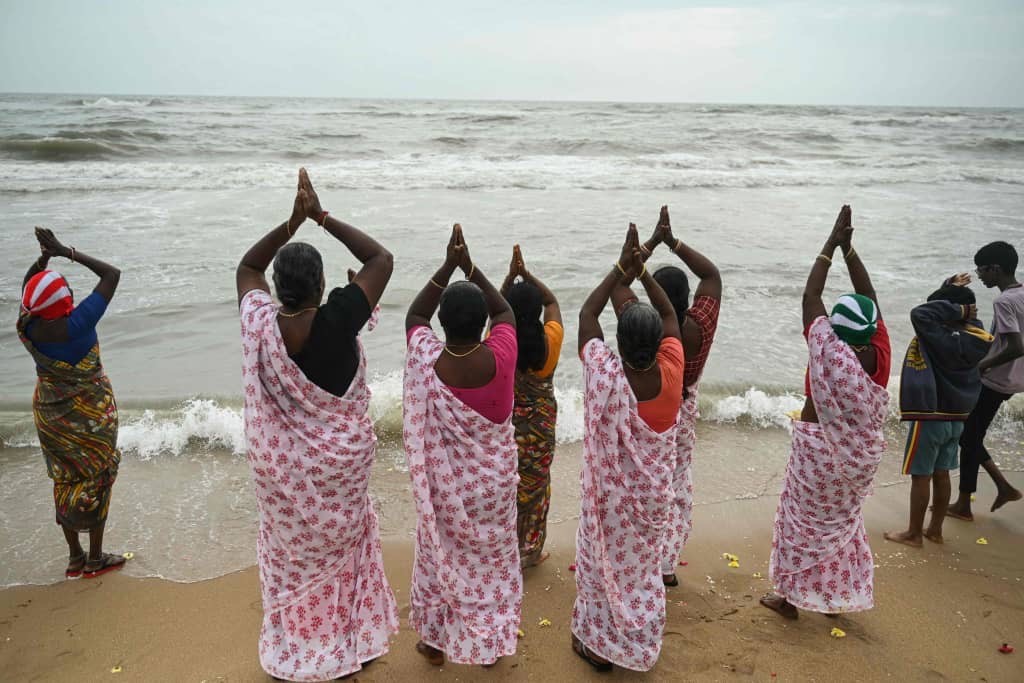JOHANNESBURG – A massive gold mining strike spilled into a third day in South Africa yesterday as unions rejected a new wage offer from the world’s second-biggest gold producer, AngloGold Ashanti.
Some 100 000 members of the leading National Union of Mineworkers (NUM) and the smaller Solidarity Union continued with the largest protest in the gold mining sector in 18 years, saying they would hold out for a better offer. “I am afraid we are not making any progress at all,” Chamber of Mines chief negotiator Frans Barker, who represents the employers, told AFP.”Informal discussions between all the companies are going ahead but we also know that NUM has rejected that offer from Anglo,” he added.The strike started Sunday at Anglogold Ashanti, Gold Fields, the fourth-biggest gold producer in the world, sixth-ranked Harmony, and South Deep, partly owned by Canada’s Placer Dome.Anglogold Ashanti and South Deep put a new offer on the table on Monday, saying it would give workers an increase ranging between 5,25 per cent and 6,5 per cent.The unions are demanding salary hikes of between eight and 12 per cent.”They need to go back and relook at the whole package and then we will get together and try to knock some sense into it,” NUM spokesman Moferefere Lekoroatsana told AFP.Gold Fields and Harmony have not come up with any new offers, sticking to a five per cent pay increase for miners and 4,5 per cent for higher-income workers.”At least AngloGold has put momentum to the process.One gets the idea that they really do want to reach a settlement.It could happen that we reach a settlement with them but that the strike continues at the other firms,” Solidarity spokesman Reint Dykema said.He said Solidarity had rejected the Anglogold offer in the hope of a “slightly better” offer.South Africa is the world’s largest gold producer, despite a nine per cent decline in output in 2004, yielding a total of 342 tonnes, according to the Chamber of Mines.A cornerstone of the South African economy, gold mines have felt the pinch of a stronger currency, foreign exchange controls and a depletion of resources, prompting fears of large-scale job losses in the industry.Its share of world gold production now stands at around 14 per cent, down from 80 per cent in 1970.-Nampa-AFP”I am afraid we are not making any progress at all,” Chamber of Mines chief negotiator Frans Barker, who represents the employers, told AFP.”Informal discussions between all the companies are going ahead but we also know that NUM has rejected that offer from Anglo,” he added.The strike started Sunday at Anglogold Ashanti, Gold Fields, the fourth-biggest gold producer in the world, sixth-ranked Harmony, and South Deep, partly owned by Canada’s Placer Dome.Anglogold Ashanti and South Deep put a new offer on the table on Monday, saying it would give workers an increase ranging between 5,25 per cent and 6,5 per cent.The unions are demanding salary hikes of between eight and 12 per cent.”They need to go back and relook at the whole package and then we will get together and try to knock some sense into it,” NUM spokesman Moferefere Lekoroatsana told AFP.Gold Fields and Harmony have not come up with any new offers, sticking to a five per cent pay increase for miners and 4,5 per cent for higher-income workers.”At least AngloGold has put momentum to the process.One gets the idea that they really do want to reach a settlement.It could happen that we reach a settlement with them but that the strike continues at the other firms,” Solidarity spokesman Reint Dykema said.He said Solidarity had rejected the Anglogold offer in the hope of a “slightly better” offer.South Africa is the world’s largest gold producer, despite a nine per cent decline in output in 2004, yielding a total of 342 tonnes, according to the Chamber of Mines.A cornerstone of the South African economy, gold mines have felt the pinch of a stronger currency, foreign exchange controls and a depletion of resources, prompting fears of large-scale job losses in the industry.Its share of world gold production now stands at around 14 per cent, down from 80 per cent in 1970.-Nampa-AFP
Stay informed with The Namibian – your source for credible journalism. Get in-depth reporting and opinions for
only N$85 a month. Invest in journalism, invest in democracy –
Subscribe Now!







